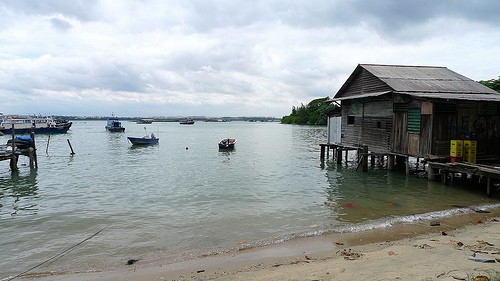If the Chinese government wants your site blocked, it’s going to be blocked, there’s nothing you can really do about that. It’s important to know, however, what the Chinese government looks out for in terms of censored content. Here is a list of proactive approaches you can take to abide by Chinese law to give your website a better shot at not getting blocked:
ICP Registration
If you’re site is hosted within China, you are required to apply for an Internet Content Provider (ICP) license with the Ministry of Industry and Information Technology. These are issued at provincial levels within the country and keep real-name associations with websites, personal and commercial. Once you receive your license number, place it on the bottom of all your site’s pages. These license are not required, nor necessarily recommended, for sites hosted in Hong Kong or overseas. Additionally, only Chinese nationals are allowed to apply for these licenses. It should be noted though, that an ICP registration is not a guarantee your site will not be blocked.
Avoid Sensitive Topics and its Discussion
The discussion of politically sensitive topics in China can change at any moment. The rule of thumb is to avoid the “Three T’s”: Taiwan, Tiananmen Square and Tibet. These are the most sensitive topics that will be flagged and marked for blocks/deletions. Other sensitive topics include Xinjiang, the South China Sea, Communist Party politicians private lives, the disputed Diayou/Shenkaku islands and pollution. While these topics may not be banned outright, they are best to avoid in articles and discussion.
Organizing Events and Inherent Risk
There is one key reason why the Internet in China is blocked: to prevent the Communist Party from being undermined. All other facets of the Great Firewall falls under this purview. The blocking of information on the Tiananmen Massacre in 1989 is an event that undermines the rule of the Party. Preventing frank and honest discussion undermines and questions the party. Preventing the discussion and organizing of the rallies, protests and other bouts civil disobedience undermines the party. You get the idea. That’s why wu-maos exist, to undermine those who speak out, or bring corruption to light. The same even goes for legitimate whistleblowers.
Recently, the anti-pollution documentary “Under the Dome” (screenshot above) garnered 100+ million views on the Chinese web yet was eventually blocked after much praise from the state-owned media. You can see the directive from the government here. Many in the China-watching press theorized that after much fanfare, the documentary raised too many questions about what the Party is doing to combat the country’s environmental crisis. These topics, and the Three “T’s,” are what may put a site at risk of being blocked by the Great Firewall.
Even organizing social events run into their own issues.I, myself, have been involved in social gatherings in China which have raised the local government’s eyebrow. Even if it’s 5,000 foreign and Chinese nationals meeting together to celebrate beer, and listen to live music, permits with Kafkaeseque bureaucratic steps and interpretation of vague social gathering laws are not uncommon. This is something I experienced first-hand with Shanghai Beer Week. Bands need permits, tents need permits and the event needs to be approved by the local party organization. If your event, even if innocuous on its face, could face the axe of the Great Firewall. That’s why event planning organizations, whether they be booking sites, social magazines or beer festivals, need to understand that any wrong move can result in a dramatic drop in traffic and government cancellation.




One thought on “Not Getting Blocked in China”